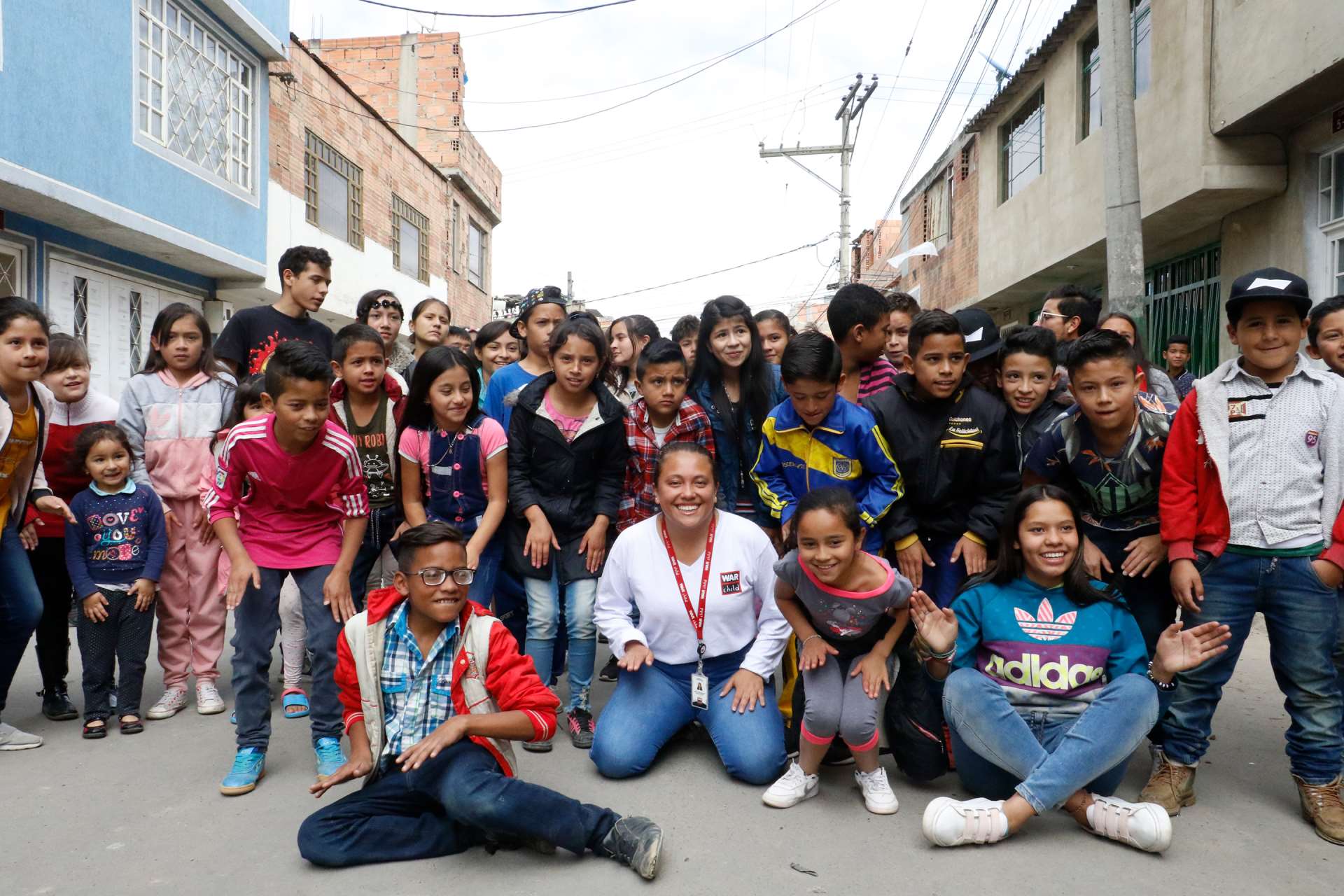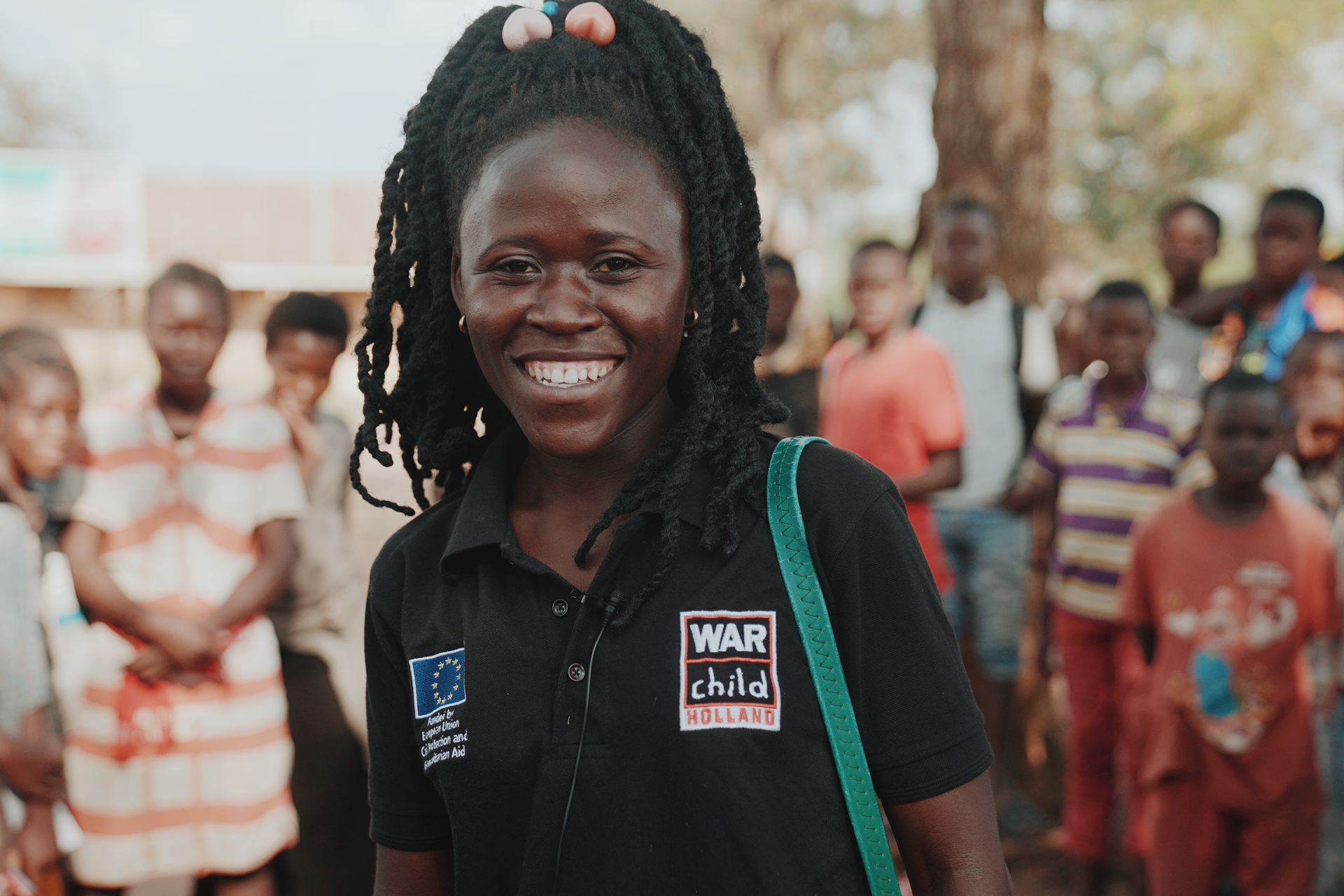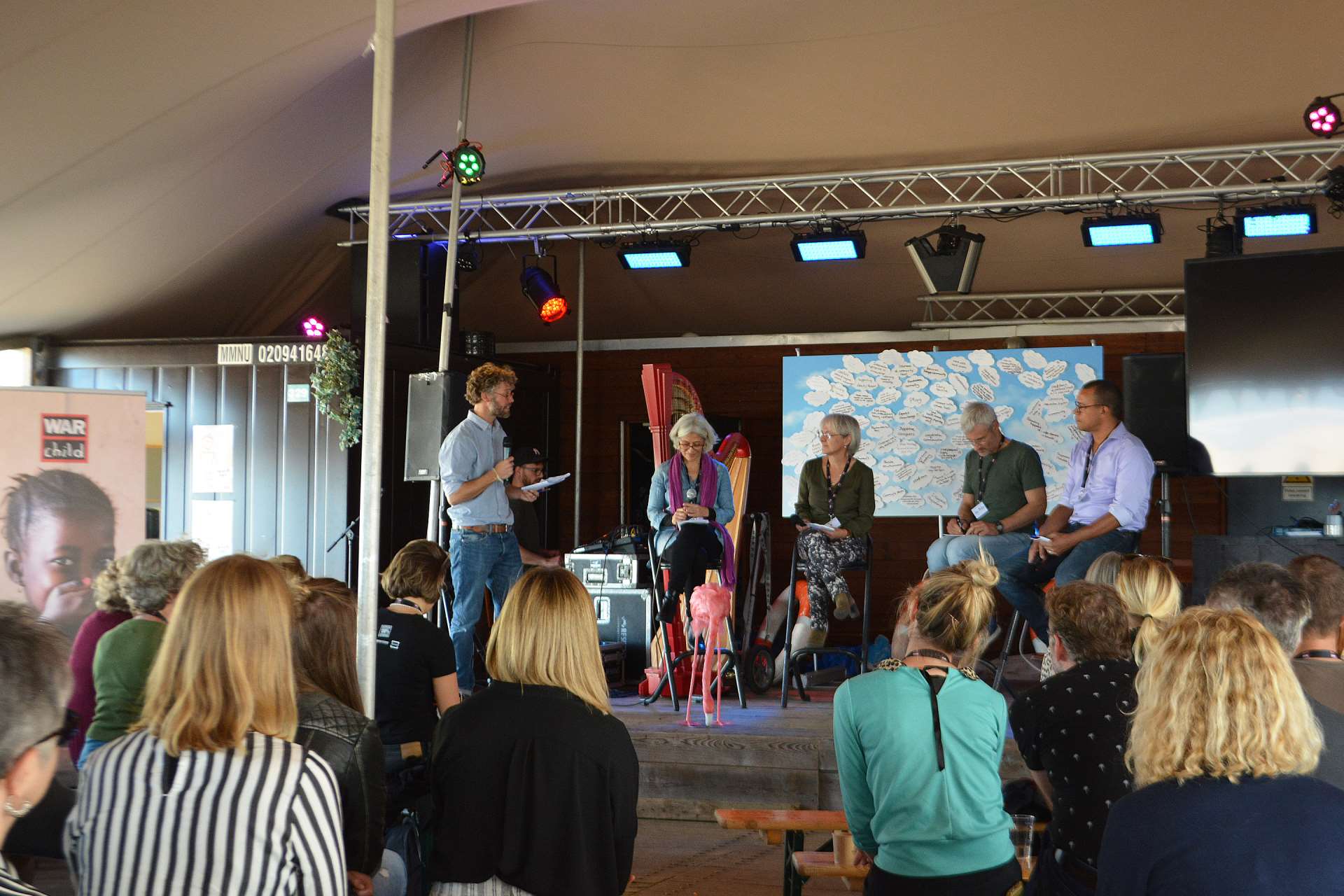Our Strategy
Reaching Greater Numbers of Children
Graphic scenes of children brutalised by violence are among the defining images of our time. Yet the nature of armed conflict is becoming increasingly unpredictable. In a world where one person is forcibly displaced every two seconds (UNHCR 2019), the parameters are chaotic - and shifting. The challenges we face continue to mount in scale and complexity.
The need for psychosocial support - particularly in urban settings - is growing and increasingly acknowledged as a global priority. Thus our relevance as War Child is also growing rapidly. We must continuously adapt our approach to close the gap between need and supply. And work to maintain the provision of psychosocial support backed by adequate funding - with a vision to include all children, no matter where they are, in our response.

War Child reaches many thousands of children and youth every year - yet there are 149 million children living directly with the effects of violence and armed conflict. We simply cannot reach all these conflict-affected children alone - which is why our strategic goal is to become the networked expert organisation for children affected by conflict.
Networked
This strategy sees us collaborate with communities, organisations and governments across the world to ensure our work has maximum reach and impact.
Expert
We are developing robust interventions - backed by the highest standards of evidence and research - and we will share them with our network of partner organisations.
2025 Organisational Strategy
In 2019 we revised our organisational strategy to engage with this changing context and drive forward our long-term goals. We are scaling up - and fast - to meet urgent mental health needs while continuing to pioneer an evidence-based approach. With increased investment in Research and Development and in-house expertise, we are uniquely positioned to take a leading role. To this end, our new 2019-2025 strategy is centred around four key ambitions:

Despite initial delays - due to necessary revisions - 2019 saw us make meaningful progress towards these goals.
Our advocacy efforts - most readily captured by our leading role in the 2019 International Conference on Mental Health and Psychosocial Support in Crisis Situations - saw significant steps taken towards the incorporation of mental health support into international humanitarian responses. The conference saw government ministers, policy makers and sector experts agree to integrate and scale up mental health and psychosocial support in this regard. Yet it still remains unclear how this resolution will be financed - a shortfall we are working hard to help address.
We began to roll out initiatives to champion the voices of youth and see these voices influence those with the power to deliver change - particularly in our African programme countries. And we deepened our collaboration with community-based organisations and local actors across the board - handing communities the tools to respond themselves to the mental health crisis.
Our goal is that every one of our programmes will be backed by rigorous evidence. The set of core interventions that make up our integrated War Child Care System were further developed and tested in our countries of operation.

Learning and Scaling Up
We made significant progress towards becoming a true Learning Organisation with the roll-out of the War Child Learning World - an e-learning portal for everyone involved with our organisation. The success of this portal was shown in the evaluation of an online learning course for TeamUp facilitators. 93 per cent of participants said their knowledge and skills were strengthened and 100 per cent would recommend the course to other learners.
Our commitment to becoming a networked expert organisation in the field of psychosocial support also moved forward over the course of 2019. The year saw the second edition of our ‘Peace Sessions - Expert’ event take place in The Hague - a unique opportunity to gather specialist knowledge on the impact of war on children. A number of key policy recommendations were generated during the day’s debates.

2019 saw us invigorate collaborative practices. The year as a whole saw increased recognition from, and engagement with, key actors including the World Health Organisation (WHO), UNICEF and Save the Children - particularly in relation to our global coalition programmes TeamUp and Can’t Wait to Learn. 2019 also saw us intensify our participation in the Dutch Relief Alliance - both to boost collaboration within the Dutch humanitarian sector and deepen our involvement across four programme countries.
We seek to contribute to positive change - on a social, cultural and environmental level - in everything we do. Our commitment to environmental entrepreneurship was bolstered in 2019 through the development of an environmental policy and action plan - an important first step towards reducing the organisation’s carbon footprint.
Because together we can change the future.